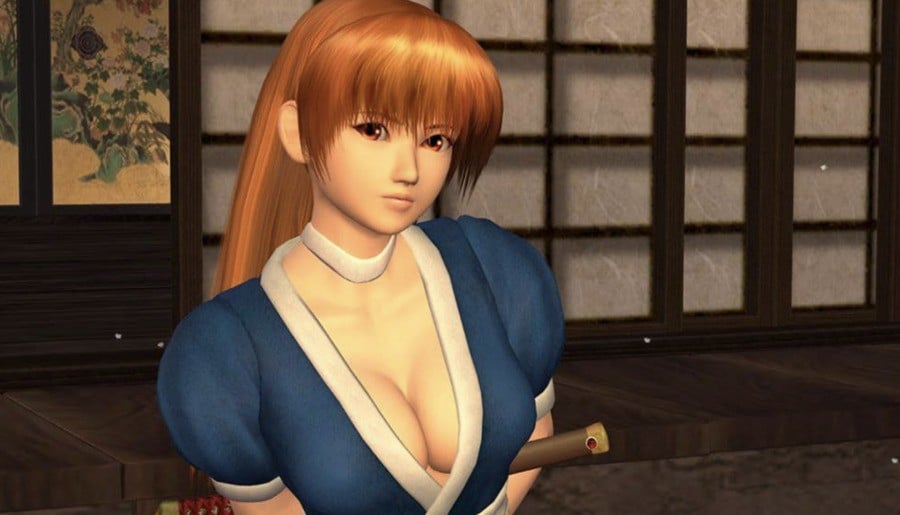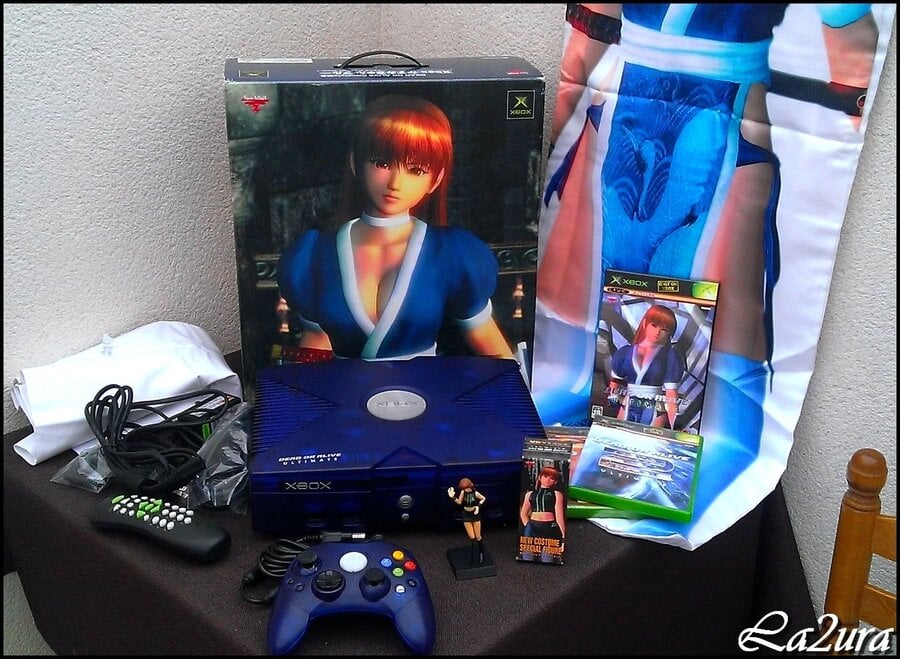
Xbox might be a global mega-brand now, but there's one region where it has traditionally struggled, and that's Japan. Despite efforts to court Japanese gamers and developers, the Xbox, Xbox 360, Xbox One and Xbox Series X/S have failed to make much of a dent in the country – but you can't say Microsoft hasn't tried to change that over the years.
One of the company's most successful collaborations in the early days of the original Xbox was with Tecmo, the company behind the Dead or Alive and Ninja Gaiden series. Both of those were short-term Xbox exclusives and did much to improve the otherwise pitiful standing of the console in Japan. However, Xbox was perilously close to losing even this modest victory in the region, thanks to the furore over a 'love pillow' featuring the Dead or Alive character Kasumi.
Mike Fischer, former General Manager of Marketing at Xbox, recounts that, during his time in Japan trying to improve the console's reputation, he was tasked with developing a strategy that would appeal to Dead or Alive fans in that part of the world. The answer? A translucent blue Xbox, which would come with the console-exclusive Dead or Alive Ultimate as a pack-in. Dead or Alive 3 and Dead or Alive Xtreme Beach Volleyball had already done decent business for Xbox in the region, so it made sense to cater for fans of the franchise with something a bit unique.
"The character Kasumi in Dead or Alive, her default costume was blue, so, we were going to do a Kasumi-blue limited edition [console] for Japan," Fischer tells author Steven L. Kent in The Ultimate History of Video Games Vol. 2. "We needed a little added-value gift. We're looking at everything. Do we put in, like, a photo album book of the girls of the game? That would have been the smart thing to do. One of [the members of] my team, Mr. Yamauchi, says, 'Oh, I got this idea for a dakimakura [large body pillows sold in Japan, often featuring sexy images], a hugging pillow.'"
The pillows were cheap to make, so Fischer green-lit the idea without telling anybody back at Microsoft's North American headquarters. "I mean, it was a Japanese-built game," he tells Kent. "We're going along fine. I mean, we're not unaware of the somewhat salacious associations, and the press piece is real tongue in cheek, but it's all in good innocent fun, right?"
Wrong. Wired got wind of the product and ran a piece titled "Getting in Bed with the Customer", which interviewed Kunio Muto, a technology reporter for the Nihon Keizai Shimbun. "They were originally very popular among fans of doujinshi (manga fanzines)," Muto explained to Chris Kohler, the author of the Wired piece. "But over the past couple of years, they have secured a spot in the otaku (obsessed fan) market. Searching Google Images with the term dakimakura is enough to understand the people who buy these items. I guess they're supposed to be used ... as pillows to hug, of course ... and for other obscene purposes that I would rather not mention."
After the piece had been published, Fischer's phone rang. "I get a call from Redmond, and it's the interim head of Xbox Japan, and he's like, 'Mike, I'm hearing these crazy rumours and I'm sure there's nothing to them, but before I shut it down, you're not making a love pillow, are you?' I'm thinking, Oh shit, oh shit, oh shit, and I say, 'Well, I wouldn't call it a love pillow.' He says, 'Oh shit.' l ask, 'Do we have a PR problem?' and he says, 'Oh, we've got a PR problem. We also have an HR problem. We have employees writing directly to Bill Gates saying this does not match the values of the company.'"

As you might imagine, Fischer's first reaction was panic, and he told his staff in Japan to cancel the pillow. He was reminded in no uncertain terms that he would have to deal with Tomonobu Itagaki, the rock star-like creator of the Dead or Alive series. "Itagaki has got the leather jacket and the long hair and the funny [dark] glasses," Fischer recalls to Kent. "He asks, 'What are you talking about, you're not going to do this?' I tell him, 'It's not like it's written in the contract,' and he says, 'Let me tell you something. I didn't want to do business with you guys to start with because of this reputation of being legalistic on everything. I did this deal with you because I trusted you. This is what we committed to. This is what we agreed to. I promised my fans, and you're not going to make me back out.'"
Fischer was painfully aware that he had placed his superior at Microsoft, Robbie Bach, "in a tough situation. This was going [all the way] to Bill [Gates]. [Robbie] was very focused on protecting Microsoft's values and integrity, and he wasn't happy about the situation. Finally, he goes, 'I guess we're either in the games business or we're not. You put some more clothes on her; I'll take the heat on this side.'"
Xbox got its Kasumi love pillow, and the rest is history. The irony is that, had Fischer not stood his ground, then the outcome for Xbox in Japan wouldn't have been massively different – but at least he managed to keep Tomonobu Itagaki happy.

